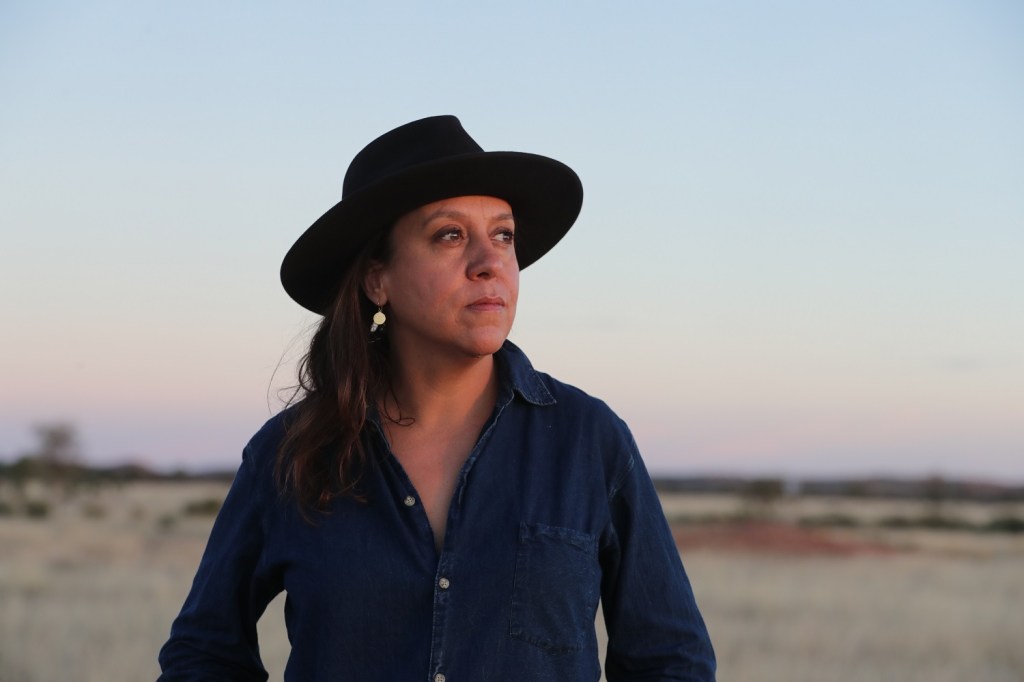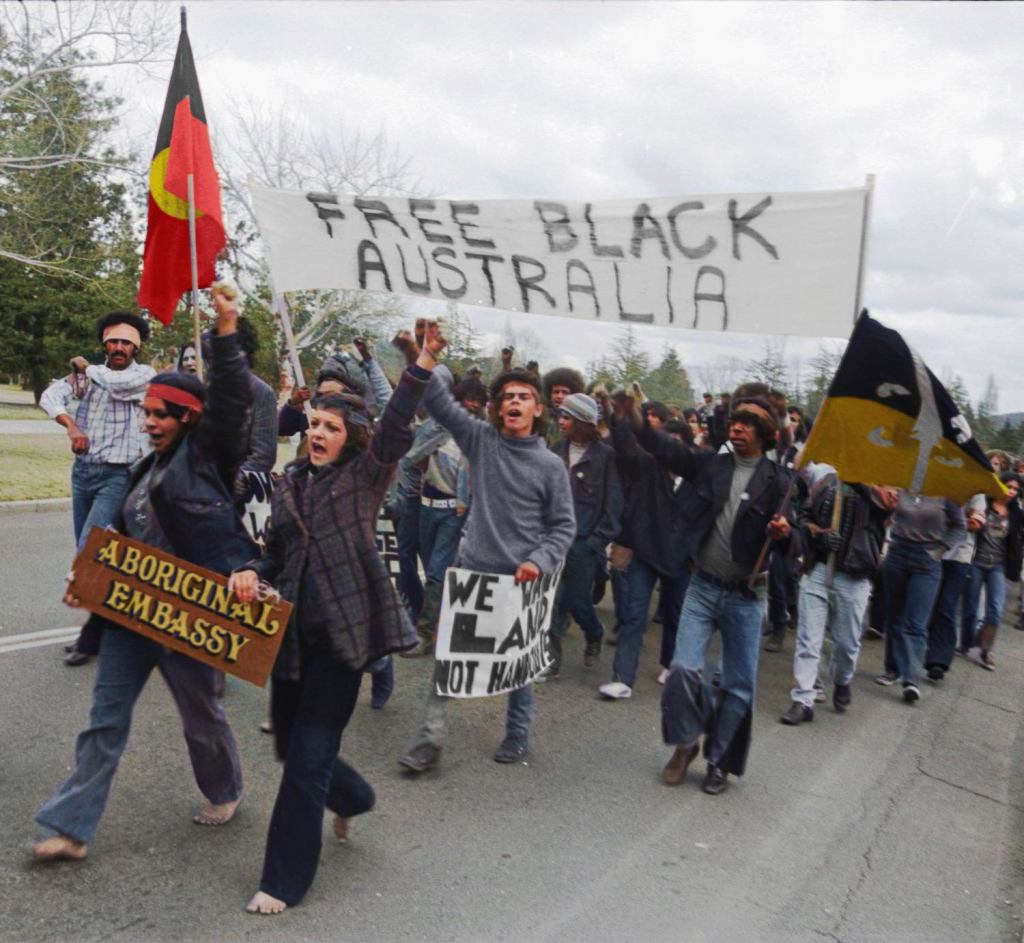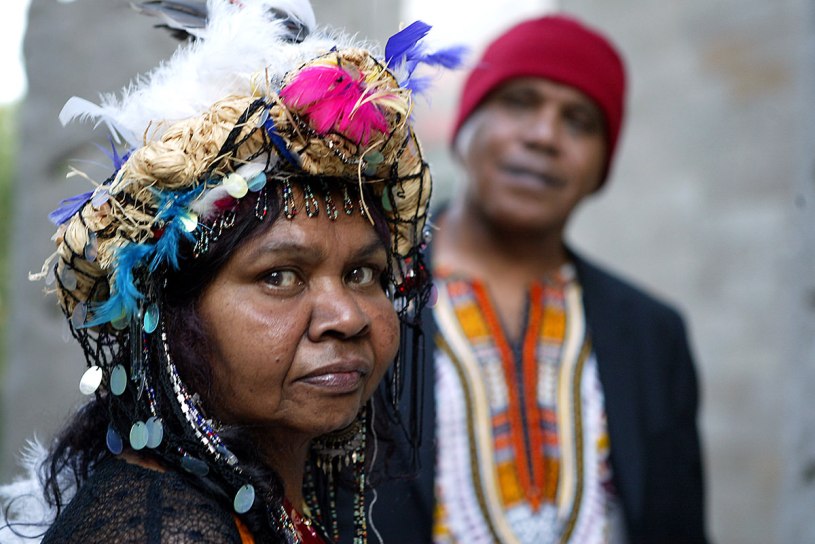Philippa Bateman’s portrait of musicians Archie Roach and Ruby Hunter, Wash My Soul in the River’s Flow, and Blackfella Films’ The Australian Wars took home the top prizes at the Australian International Documentary Conference (AIDC) Awards this afternoon.
The ceremony, hosted by journalist Ash London and held at ACMI, marked the conclusion of the four days of in-person proceedings, with the international marketplace to now be held online over the coming days.
The event also saw the announcement taht all five finalists in the inaugural Fresh Cuts Documentary Pitch – Bimbo Biology Body Breakdown, Dying to Succeed, Glitter Gang, The Real Meaning of Pleasure and Replica – will receive $30,000 in Screen Australia development funding each, with the agency unable to choose just one winner.
Wash My Soul In The River’s Flow is a “cinematic reinvention” of Roach and Hunter’s concert that premiered in 2004, Kura Tungar — Songs from the River, a collaboration with Paul Grabowsky and th Australian Art Orchestra.
The film, produced by Roach, Kate Hodges and Bateman, weaves never-seen-before footage of conversations with the musicians, rehearsals and the opening night, with images of Hunter’s Ngarrindjeri country in South Australia.
The AIDC Award sees the filmmaking team, which also included EPs Ian Darling and Emma Donovan, take home a $5,000 cash prize.
The jury praised the film as “elegant, confident and intimate to its magnetic subjects”.
“Bateman’s film so impressively captures a setting and a stage where music compels the story of their lives, and where it stands proudly in resistance against the injustices of our history,” they said in their statement.
“Through an ambitious and outrightly beautiful combination of concert film, biography and political struggle, Wash My Soul in the River’s Flow is a profound sharing of Roach and Hunter’s own gifts of storytelling; a film full of heart, the beauty of song, and the transcendent power of art to confront pain, and to heal.”

Commissioned by SBS, The Australian Wars is a three-part series presented and directed by Rachel Perkins that investigates the frontier conflicts between 1788 and 1928 and their impact, calling for the First Peoples who died in these conflicts to be acknowledged by the nation and officially recognised by the Australian War Memorial. Darren Dale is the producer, with Jacob Hickey the writer.
In its statement, the jury said: “From the opening minutes, we all agreed that The Australian Wars stood out as a superbly crafted piece of television. But as those opening minutes went by, it quickly became apparent how such masterful craftsmanship was serving a story of far-reaching significance. The direction, editing, writing and music fused seamlessly together to draw us into a heart stopping narrative that illuminated another dark corner in Australia’s colonial history.
“Rachel Perkins and her team took an incredible and creative approach toward this mini-series, making some bold and beautiful choices along the way to manifest some ugly truths that may affect common historical narratives. The dramatic reenactments were some of the best all of us had seen, and the sheer calibre and diversity of expert historical analysis elevated this mini-series to the realms of essential classroom viewing – possibly filling the gaps left open by current Australian and European textbooks. Bravo to the entire team behind The Australian Wars.”
Winner of Best Documentary/Factual Single, taking home $5,000 from Artisan Post Group, was Tamarind Tree Pictures/ABC’s Still We Rise, directed by John Harvey, produced by Anna Grieve with editor Patrick McCabe and composer Leon Rodgers.

The film documents the history of the Aboriginal Tent Embassy, with the jury stating it was impressed by the combination of a retrospective story feeding into a present day political conversation, and for the way it presented Indigenous history in a modern way that would appeal to both Australian and international audiences.
“We loved the way it avoided didactic narration and used sound and music to make something radical for a mainstream TV audience. This was exciting modern filmmaking,” they said.
Best Short-Form Documentary went to Eden Alone Surpasses Thee, directed and produced by Tom Chapman, with cinematographer Gabriel Morrison, sound/music by Finn Clarke and editor Geri Docherty.
The jury congratulated the film for being a compelling and thought-provoking piece of cinema.
“The filmmakers have done a beautiful job of portraying the struggles of young men with empathy and compassion. Through intimate and striking cinematography, they have crafted a thoughtful film that tackles a complex topic, demonstrating that communication can play an essential role in the healing process. Eden Alone Surpasses Thee is a powerful and necessary film that all should see.”
The winner of Best Interactive/Immersive Documentary went to Night Creatures, from Isobel Knowles and Van Sowerine and producer Philippa Campey, who won a $3,000 prize from Deakin Motion Lab.
The project was commissioned by the Melbourne International Film Festival, and formed a virtual celebration of the festival’s “in between” moments. The jury praised its use of stop-motion AR characters.
“We loved the artful animation style, the appealing characters and the delivery of story fragments that were full of reminiscence, whimsy, and charm,” they said.
“We appreciated the consideration of the artists to conceive of a work that could be iterated on – creating the opportunity for a long-lived evolving work in the developing field of AR.”
Other winners included Best Audio Documentary, taken home by Patrick Abboud and Simon Cunich for The Greatest Menace: Inside the Gay Prison Experiment.
As previously announced, Cathy Henkel was presented with the Stanley Hawes Award, celebrating her more than 30 year career as a documentary filmmaker.
In terms the FACTory Pitch Prizes, the Sheffield Doc/Fest Prize went to Australian/Mongolian project Winter Herd (FACTory Central Showcase), directed by Kasimir Burgess; the Hot Docs Prize to I Thought Jesus Was Korean (FACTory New Talent Showcase); the Sunny Side of the Doc Prize to Australian project Bukal Bukal, directed by Rhoda Roberts (FACTory Central Showcase); the Dok Leipzig Prize to Untying the Knot (Factory Talent Showcase).
During the awards ceremony, AIDC also announced new board appointments in ABC head of Indigenous Kelrick Martin, Screenwest documentary executive Paul Williams, SBS unscripted commissioner Bernadine Lim and incoming company secretary Marco D’Angele, partner at Marshalls Dent & Wilmoth.


